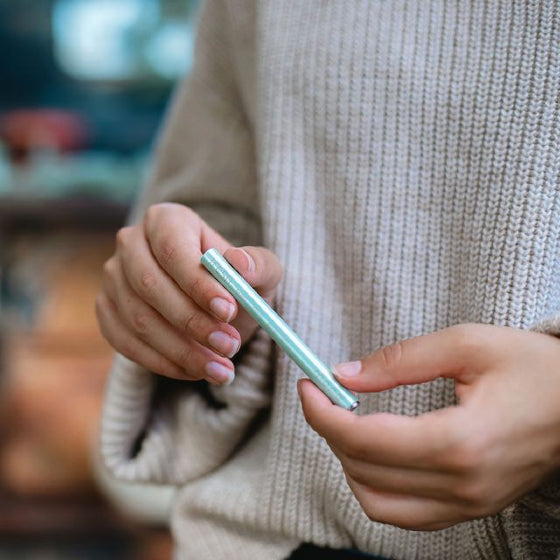Buy 2, Get 1 Free
Experience Serenity with Every Breath. Shop Now and Save Sitewide!
Nicotine Free | Organic Essential Oils
★★★★★ Over 40,000 5-Star Reviews
MONQ is a zero-nicotine, vape-like diffuser that supports specific effects like relaxation and focus.
The way it works is by putting the power of aromatherapy into your hands.
Aromatherapy is the intentional use of plant fragrance to change your state of mind. It is a way to awaken your senses and improve the way you feel. With aromatherapy you are using essential oils like frankincense, lavender, eucalyptus (and many more!) that can bring up different memories, emotions, and other positive states within your nervous system.
MONQ is an on-demand way to use aromatherapy in order to feel calm, relaxed, focused, happy, or sleepy - or any other way you want. It takes place with a vape-like device - but it is very different. That's because you don't inhale it into your lungs, but instead you breathe it IN to your mouth and exhale OUT through your nose. All without having to use nicotine or other unwanted chemicals found in standard vape devices.
MONQ utilizes this technology to recreate the experience of a typical home diffuser - but more concentrated, direct, and immediate. Instead of dissipating into the room and losing potency - MONQ makes that positive feeling of aromatherapy available, on-demand.
Check out our blends developed by expert formulators and scientists.
These statements have not been evaluated by the Food and Drug Administration.
This product is not intended to diagnose, treat, cure, or prevent any disease.









